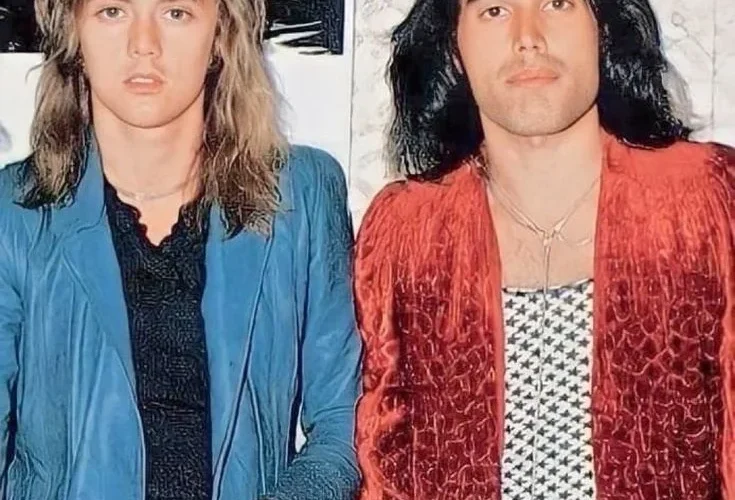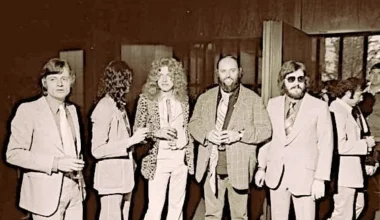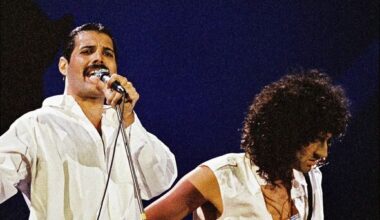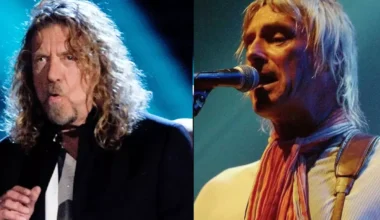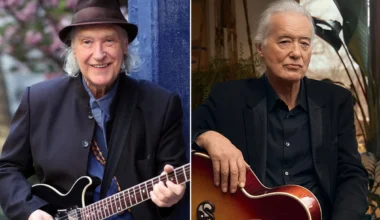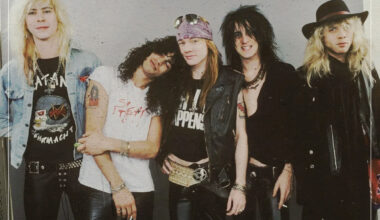In July 1986, during a party hosted by Freddie Mercury, John Deacon looked around and thought, “This isn’t my thing.” At one point, he silently slipped out of his chair and hid under the table. The scene gives a good account of the introverted character of Queen’s bassist, a guy who never liked the excesses of fame, let alone the typical rock stars’ eccentricities. Thirty years later, it’s still the same: in 2016, the musician was approached at the doors of the London Astoria by a group of Queen fans, who went crazy to see the genius creator of the bass lines of “Under Pressure” and “Another one bites the dust.” Deacon, astonished, responded to requests for photos and autographs with an “oh, sorry, sorry” pact covering his face with hands of pure shame.
When he achieved global success with Queen, still very young, John Deacon married Veronica Tetzlaff, and bought a house in south London, where they ended up raising six children. He has been living there for more than 40 years, and devotes his time to golf, family and drinking tea in the tranquility away from the media spotlight. He hasn’t given interviews in twenty years, and has barely been photographed by the press on his morning walks in his neighborhood. She hasn’t even performed at any Queen public act in all this time, including the premiere of “Bohemian Rhapsody” or the gala that hosted the group at the Rock & Roll Hall of Fame. “You’re wasting your time if you’re trying to find John,” a neighbor told the Daily Mail a couple of years ago. “Yes, he lives there, but he doesn’t talk, to anyone.” Haven’t seen him in a long time, he’s fine, just he lives in private.”
The show must not go on Deacon was the only one who made it absolutely clear that the band shouldn’t be safe when Freddie Mercury died. “As far as we’re concerned, this is it. There’s no point in going on. It’s impossible to replace Freddie,” said the bassist, who apparently was the best at handling Mercury on a personal level.
Deacon created a side group, The Immortals, with which he released a single. He met with Queen alone to finish the band’s final album, “Made in heaven”, and also participated in the recording of “No-One But You, the group’s only single without Mercury, released in 1997.” Live, he only appeared at the charity concert that served as a tribute to the vocalist in 1992, at a fundraising recital with Roger Taylor in Midhurst in 1993, and at the opening of the Ballet in Paris in 1997, performing The Show Must Go On with Elton John. Also, I join Spike Edney, Queen’s collaborating keyboardist, on some of his performances with the SAS Band. But since then, total confinement.
To be able to carry his life as a hermit, Deacon came to an agreement with Brian May and Roger Taylor, so that they could continue using the group name and do with him whatever they wanted, provided they consulted him before making important decisions, such as tours with Paul Rodgers and Adam Lambert, the compilation release, the soundtrack approval and of course the movie Bohemian Rhapsody. “Most of the time he doesn’t even reply to us.” That’s right: checks take them all. We’re not in touch because John is really a sociopath. He has given his blessing to what Brian and I can do with the Queen brand. “And we’ve certainly made the most of it,” Taylor once said. “It’s his choice,” May added. “He doesn’t contact us.” John was pretty delicate from the start.”
With those checks, Deacon has amassed a fortune of $135 million without doing anything. She only lives on the income of what Queen earned in her golden years, and maybe that’s why she doesn’t want to take more credit than she deserves, nor spend the money on rock star luxuries and treats. No luxury cars, no train trips, no immense properties distributed around the world. Deacon hasn’t had millionaire weaknesses in this whole time.
